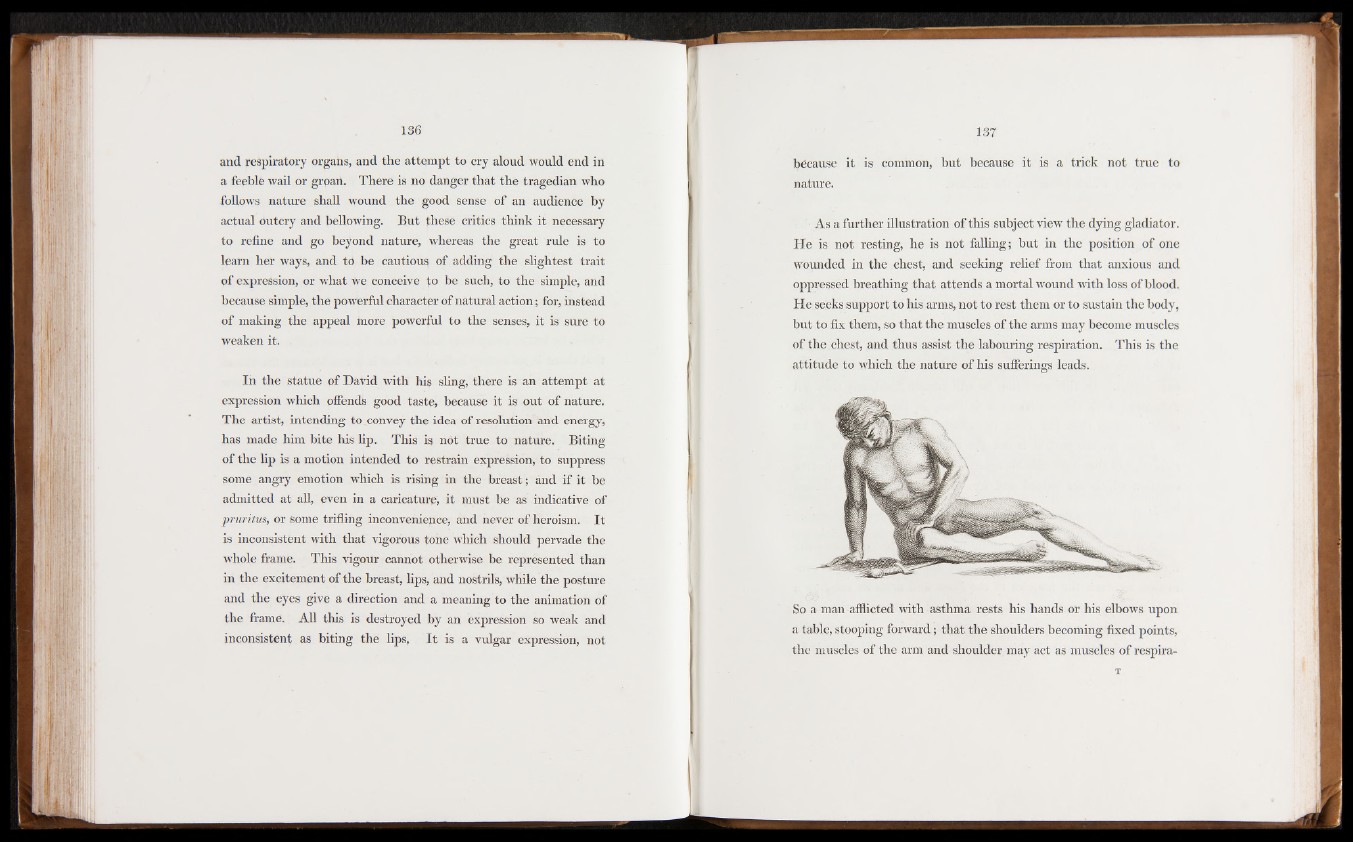
and respiratory organs, and the attempt to cry aloud would end in
a feeble wail or groan. There is no danger that the tragedian who
follows nature shall wound the good sense of an audience by
actual Outcry and bellowing. But these critics think it necessary
to refine and go beyond nature, whereas the great rule is to
learn her ways, and to be cautious of adding the slightest trait
of expression, or what we conceive j» be such, to the simple, and
because simple, the powerful character of natural action; for, instead
of making the appeal more powerful to the senses, it is sure to
weaken it. .
In the statue of David with his sling, there is an attempt at
expression which offends good taste, because it is out of nature.
The artist, intending to convey the idea of resolution and energy,
has made him bite his lip. This is not true to nature. Biting
of the lip is a motion intended to restrain expression, to suppress
some angry emotion which is rising in the breast ; and if it be
admitted at all, even in a caricature, it must be as indicative of
pruritus, or some trifling inconvenience, and never of heroism. It
is inconsistent with that vigorous tone which should pervade the
whole frame. This vigour cannot otherwise be represented than
in the excitement of the breast, bps, and nostrils, while the posture
and the eyes give a direction and a meaning to the animation of
the frame. All this is destroyed by an expression so weak and
inconsistent as biting the bps, It is a vulgar expression, not
because it is common, but because it is a trick not true to
nature.
As a further illustration of this subject view the dying gladiator.
He is not resting, he is not falbng; but in the position of one
wounded in the chest, and seeking relief from that anxious and
oppressed breathing that attends a mortal wound with loss of blood.
He seeks support to his arms, not to rest them or to sustain the body,
but to fix them, so that the muscles of the arms may become muscles
of the chest, and thus assist the labouring respiration. This is the
attitude to which the nature of his sufferings leads.
So a man afflicted with asthma rests his hands or his elbows upon
a table, stooping forward; that the shoulders becoming fixed points,
the muscles of the arm and shoulder may act as muscles of respira